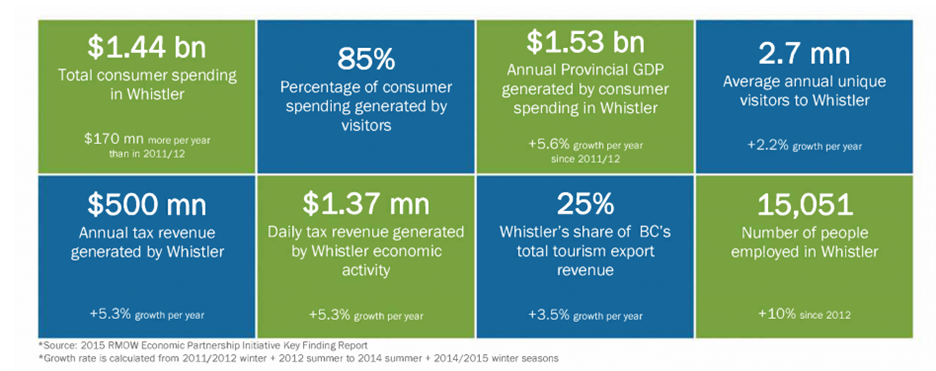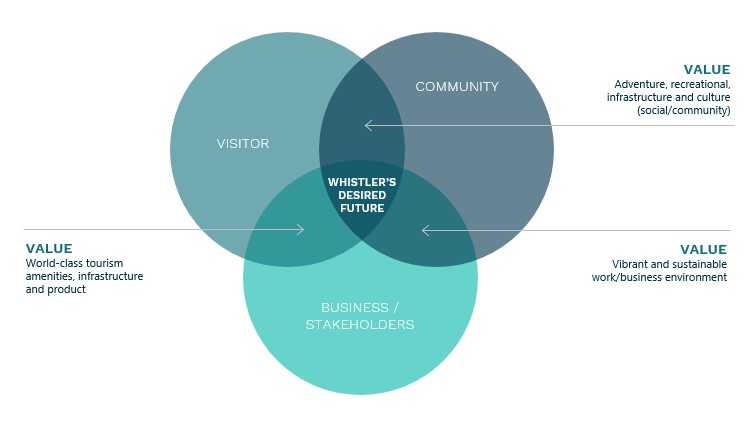Whistler: Built To Welcome The World
Whistler is located on the shared traditional territories of the Squamish Nation and the Lil’wat Nation, who inhabited these lands for millennia hunting, gathering and trading.
But, Whistler’s most recent history is rooted in tourism, and it all began with the pioneering spirit of Myrtle Philip.
As a visionary of the early 1900s, Myrtle Philip set out to establish Whistler as one of the most popular summer resorts in Western Canada. Myrtle and Alex Philip, both from Maine, arrived in Whistler in 1911, eventually building the popular Rainbow Lodge on Alta Lake. In the beginning, the journey to Whistler took three days – a steamer ship ride from Vancouver to Squamish, overnight in Brackendale, and a two-day horse trek up the Pemberton Trail. Then in 1914, the Pacific Great Eastern Railway, now BC Rail, reached Alta Lake and opened up the Whistler valley to the outside world.
Whistler’s evolution into the world-class ski resort it is today began in the early 1960s when a group of Vancouver businessmen sought to develop the site to host a future Winter Olympic Games. The site was narrowed down to London Mountain in Garibaldi Provincial Park, the mountain that in 1965 would be renamed Whistler Mountain. The Olympic bid failed, but in 1962, the Garibaldi Lift Company was formed with Franz Wilhelmsen as president and the goal to erect and operate lifts on Whistler Mountain. By the fall of 1965, there was a four-person gondola to the mountain’s Mid Station, a double chairlift to the treeline, and two T-bars along with a day lodge. Whistler Mountain opened to the public in 1966, and the rest is history!
Tourism Matters
The tourism industry is a powerful force in British Columbia and is one of our province’s leading business sectors, contributing more than $22.1 billion* in revenue annually to the provincial economy and creating more than 125,000* jobs.
In Whistler, tourism is the heart of our economy, and the local tourism industry makes life as we know it possible. Most residents of Whistler are employed by businesses in the tourism sector and many of Whistler’s amenities, which residents and visitors enjoy alike, are a result of buoyant visitor demand.
Consistently ranked one of the top ski resorts in the world, Whistler is a global leader among destination mountain resort communities. Its resilient and vibrant tourism economy is supported by community-wide partnerships focused on economic growth and development. The result is an exceptional vacation destination for visitors, and a great place to live, work and play for residents.
Visit the Research & Insights page for more information about tourism in Whistler and resort performance.
*Based on 2023 figures from Destination BC.
Whistler Economic Highlights

Source: www.whistler.ca/business-development/economic-development
The Future of Tourism in Whistler
Tourism Whistler believes that in order to be successful, Whistler must balance a vibrant, prosperous destination with a desirable, livable community.
Through our place branding tourism visioning exercise, we were able to identify that alignment, harmony and balance between visitors, community and businesses is ultimately Whistler’s Desired Future.

Our Long-Term Tourism Vision & Strategy provides the framework for a sustainable tourism plan that aligns the interests and values of local residents and guests, while working to balance year-round visitor volumes.
Learn more about Whistler’s Place Brand and Long-Term Tourism Vision & Strategy.
Learn more about the RMOW’s Smart Tourism Vision, created in partnership with the Smart Tourism Committee, including participation from Tourism Whistler.